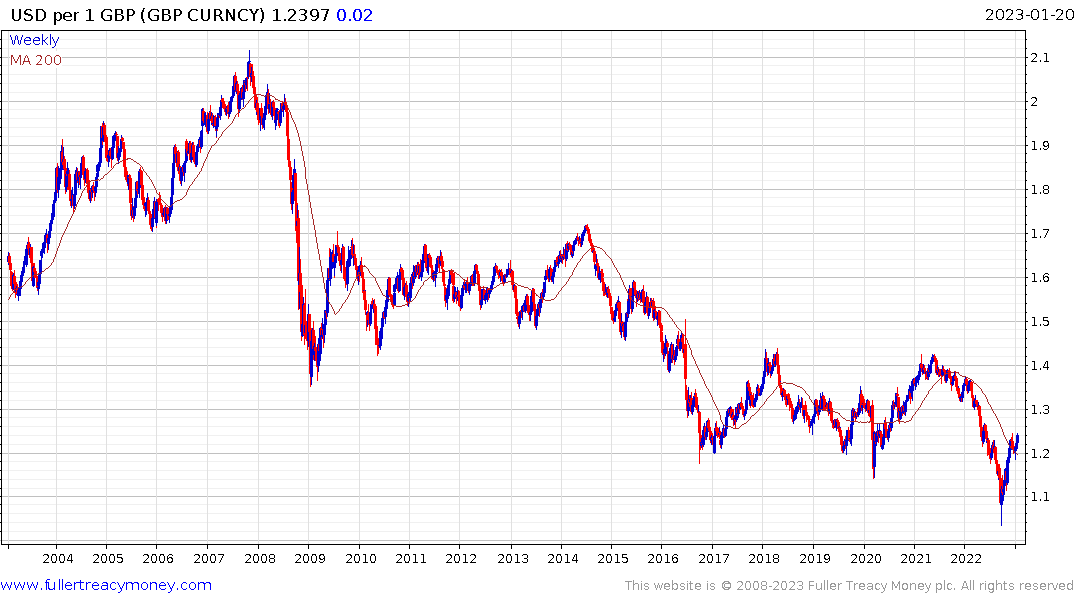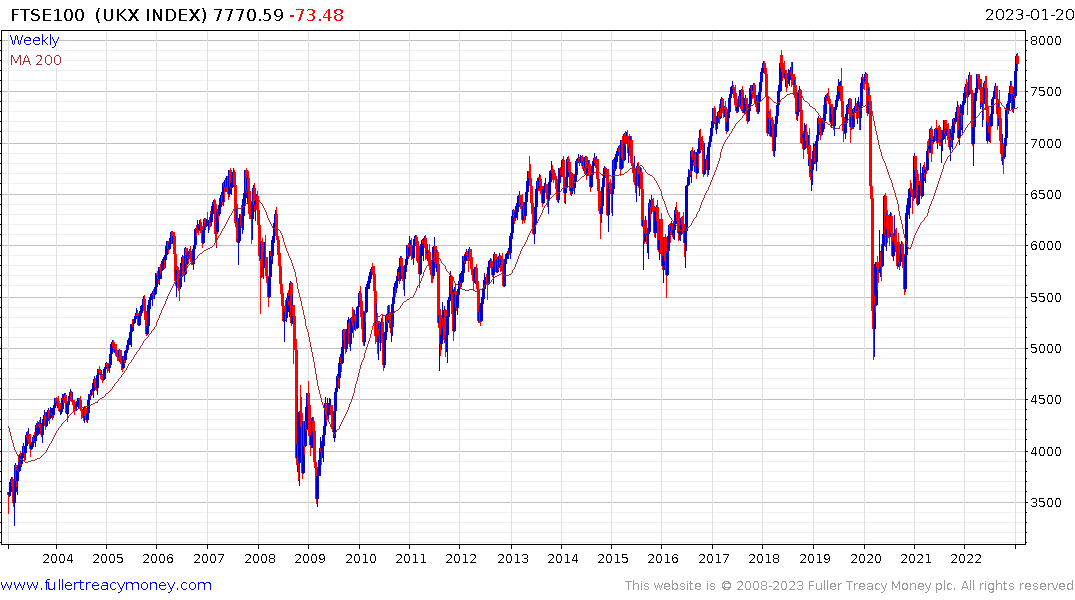Strikes Are Bad for the UK Economy? Go Figure
This article from Bloomberg may be of interest. Here is a section:
It's a head-scratcher. According to the Office for National Statistics, some 467,000 working days were lost in November alone — and a total of 1.6 million in 2022, the most since 1990. This year is shaping up to be worse. We certainly feel poorer for it all, but with the rail sector comprising just 0.3% of GDP, it is not showing up in the data in a way that we can justifiably point a finger at it.
Network Rail estimates lost ticket revenue to date from the strikes at £400 million ($500 million), but it is very tricky to measure what might well be a permanent loss of future revenue as commuters alter their behavior. Passenger numbers are still only about 80% of pre-pandemic levels. The Royal Mail also will struggle to recover business from the postal worker strikes. UKHospitality reckons there was £2.5 billion of lost trade due to the rail strikes. The picture will be worse in city centers but that will be counterbalanced in areas where commuters live.
The Centre for Economic and Business Research estimates a £1.4 billion direct cost in lost working days over the past eight months. That seems suspiciously low, but compared to the U.K's £2.5 trillion annual GDP, the verifiable effects so far are basically a rounding error.
Just as in markets, economic correlations break down over time and efficiencies smooth out. Using the number of passengers multiplied by train journeys equates to a number of work hours lost. However, to rely on that figure one would have to assume work from home does not exist.
I remember when we got broadband internet at home in the mid ‘90s. I decided at that time I was going to go to London when I finished college and find a job I could do from anywhere. Many people came to the same conclusion during the pandemic and that is shifting the relevance of economic metrics.
 The Pound continues to recover against a declining Dollar but is now also steadying versus the Euro.
The Pound continues to recover against a declining Dollar but is now also steadying versus the Euro.
 The UK’s competitive valuations and appreciating currency has boosted the market’s allure for foreign investors. A short-term overbought condition is currently evident so there is room for some consolidation. That is especially true of the FTSE-100 which tested its all-time peak this week.
The UK’s competitive valuations and appreciating currency has boosted the market’s allure for foreign investors. A short-term overbought condition is currently evident so there is room for some consolidation. That is especially true of the FTSE-100 which tested its all-time peak this week.


